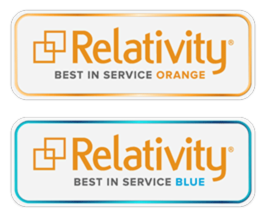kCura Relativity is a legal e-discovery application that hosts its data in SQL Server. You can host it yourself, or hire a hosting partner who specializes in hosting it for you. The best hosting partners compete for Best in Service status, an award that means what it says on the tin.
Starting this year, kCura’s toughened up the requirements for Best in Service. It ain’t Average in Service, or Good Enough in Service. As a result, database administrators have some extra work to do.
Best in Service requires a disaster recovery plan.
Deep, calming breaths. I didn’t say a warm standby data center – I just said a plan. It might be perfectly okay for your plan to be, “Step 1: panic. Step 2: call Brent to bring our databases back from the dead.”
Here’s the thing, though: at some point, one of your customers is going to ask to see the plan. (I know, because I’ve been involved in some of those conversations.) You don’t want to show them a plan that looks that way.
Use these resources to get started:
- Our High Availability and Disaster Recovery Planning Worksheet, a simple 3-page PDF that lays out your RPO and RTO options.
- RPO and RTO: The Letters That Get DBAs Fired
- How Many Databases Can I Put on a SQL Server? It comes down to how fast you need to guarantee restores.
- How Do You Manage DBAs? Measure Backups.
Best in Service Requires Transparency
kCura’s all about transparency, right down to the Trust portal that shows Best in Service partner service status. Today, publishing your scores is optional – but come summer, it’s going to be mandatory.
That means if you miss backups or DBCCs, the whole world’s gonna know.
And it’s going to cost your business real money.
I’m wildly excited about this because it brings business focus to a very important DBA job duty. It’s your job to make sure the data is safe and secure. Start measuring it and checking today before you have awkward management conversations this summer.



2 Comments. Leave new
I can’t wait to see a real distribution of green, yellow and red scores on the Trust website. Also, I would argue kCura does not put enough emphasis on their Recoverability and Integrity portions of the score. True, you want to have high Uptime, well built and maintained Infrastructure, and a great User Experience score. However, the minute you lose data a client has been working on for several months because a disaster hits or something is accidentally deleted or corruption hits all bets are off. I would be willing to bet if you really had clients rank which of the four scores they felt was most important they would agree. That is also why every good DBA knows that backups and DBCC CHECKDB are your #1 priority.
Chris – you know, it’s funny. I get in front of a lot of Relativity shops, and overwhelmingly, everyone’s concern is performance because they just assume SQL Server can never lose data. There’s a lot of customer education that has to happen first about relational databases, and then the customer gets the importance of recoverability, but it takes a LOT of explaining. (Even just showing a recent list of SQL Server bugs helps.)
Because of that, I’m happy to see recoverability on the dashboard at ALL. I think if you let most clients pick right now, without an explanation first, they would base it on performance and uptime alone. We’re different because we’re database people though.